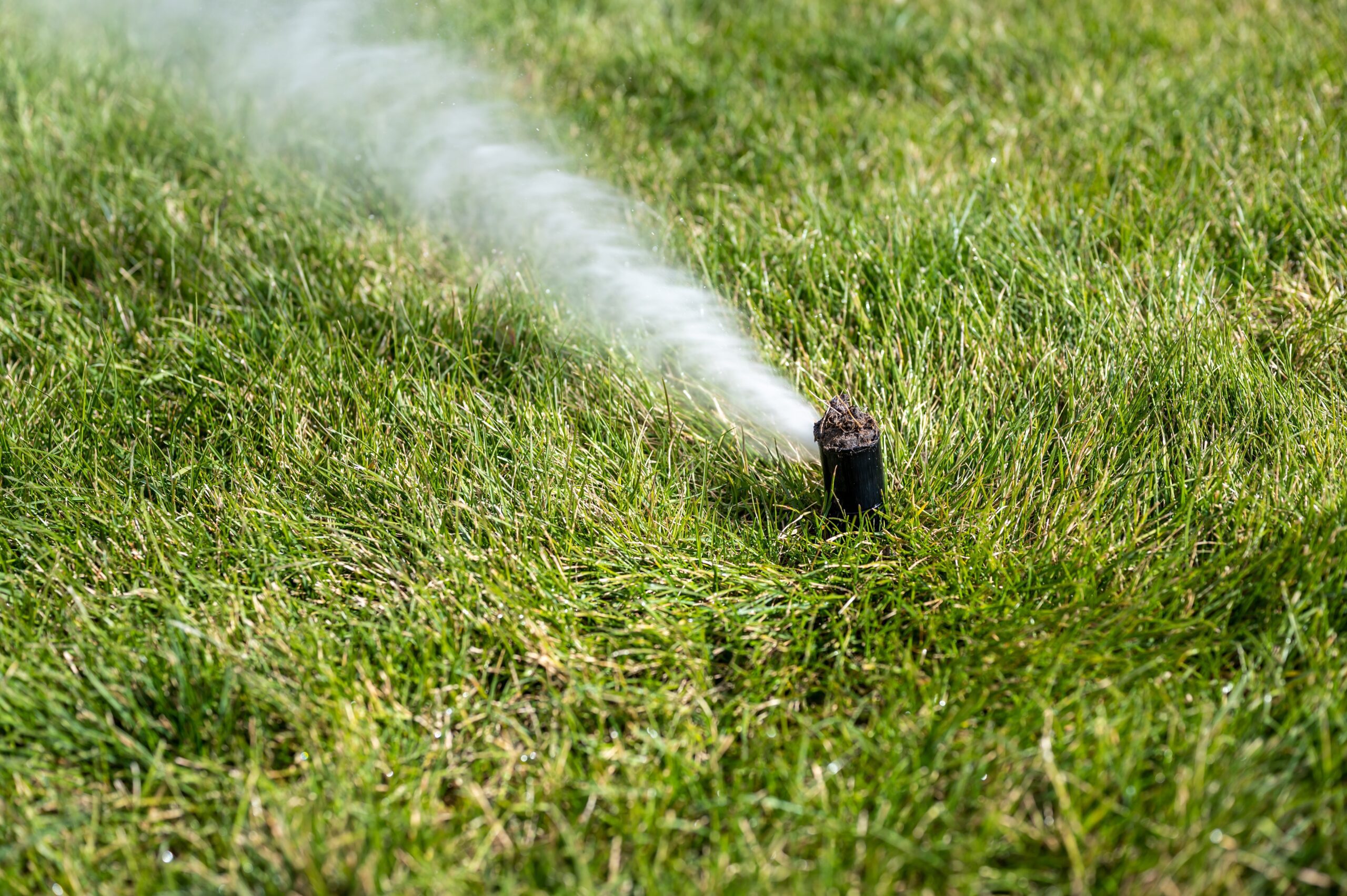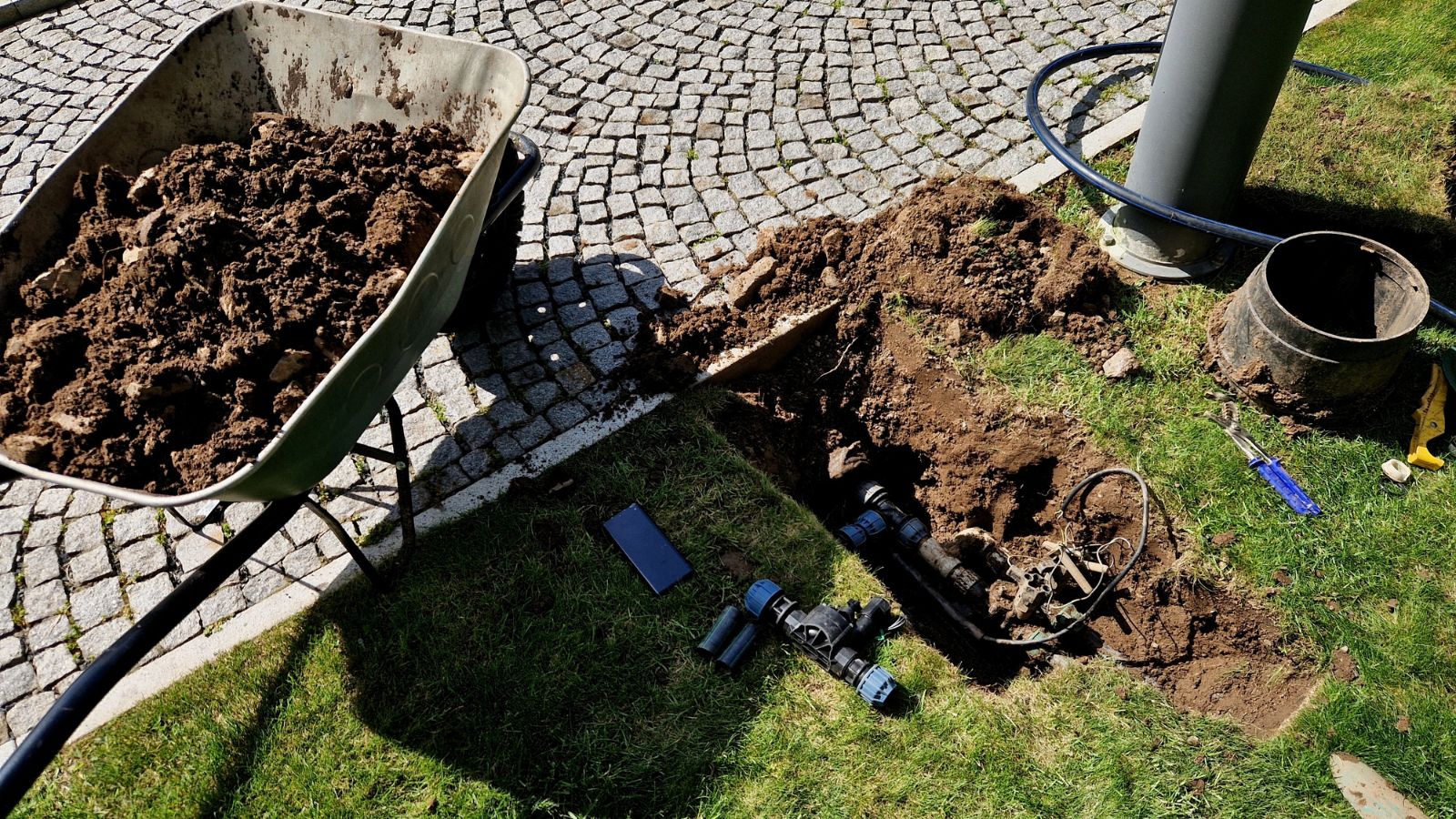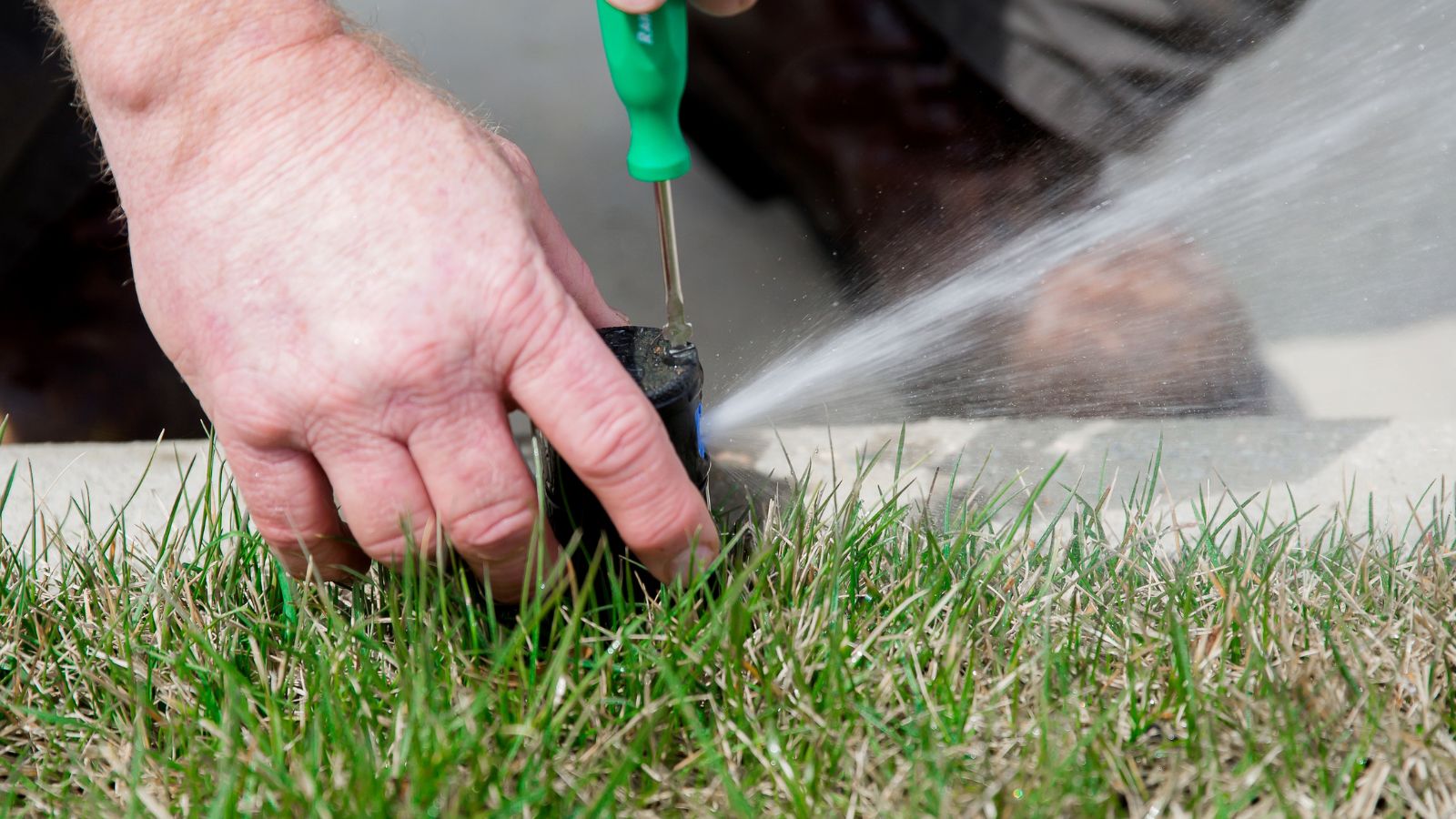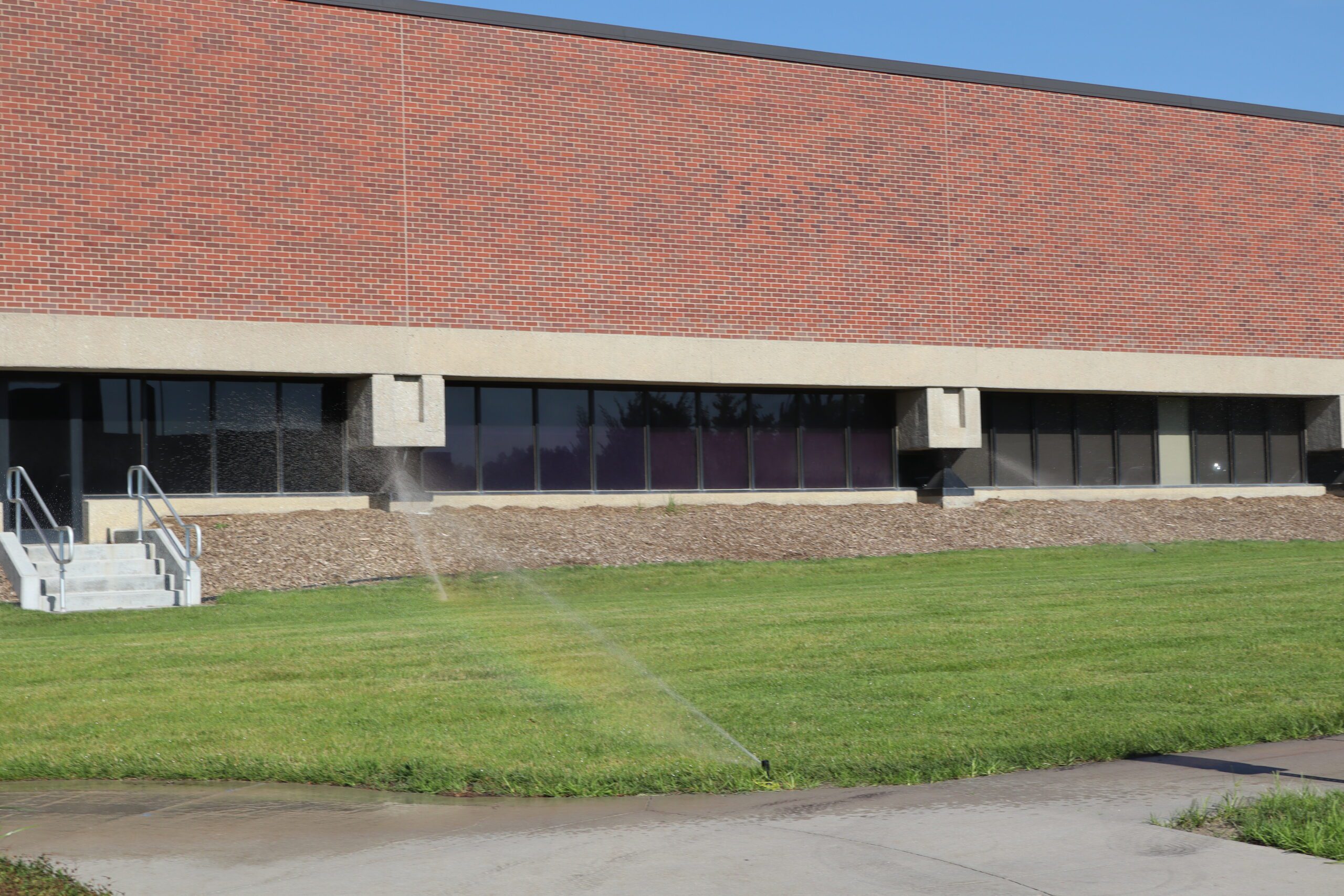Efficient lawn care goes beyond regular watering—it requires smart tools that adapt to changing weather. A sprinkler rain sensor is one such innovation that helps prevent unnecessary water use by pausing your irrigation system during rainfall. This simple addition can significantly improve landscape water management while reducing utility costs. For property owners in Omaha, integrating a rain sensor with routine sprinkler maintenance services ensures your system stays responsive, efficient, and environmentally responsible throughout the season.
How Does a Rain Sensor Work on a Sprinkler System?
What is a rain sensor?
Rain sensors can be our buddies when it comes to conserving water. A rain sensor is used to detect rain when the rainy season comes and it also generates an alarm to your sprinkler, making it easy to alert us and conserve water. When the sensor detects a level of rainfall, the alarm will be sent onto the sprinkler’s system and let the timer know that a certain cycle of the sprinkler will be skipped due to the rainfall, making it conserve water. It is a very convenient technology that is perfect for people who do not have the time to always water their lawn grasses and plants.
What does a rain sensor contain?
The rain sensor looks like a board and has nickel-coated lines. It also has its own resistance principle which plays a role whenever a rainfall happens. This sensor module also gauges moisture through analog output pins and gives a digital output to the overall sensor. It has a good quality sensor module and anti-conductivity and oxidation. Therefore, this makes rain sensors an effective technology to use.
How does a rain sensor operate in general?
Other than the principle of resistance, the rain sensor also functions based on the principle of internal reflection. The sensor’s infrared light beams are positioned at a 45-degree angle in a clear area. When it rains, the wet glass of the sprinkler system sensor causes the light to scatter. As a result, a lesser amount of light gets reflected back to the sensor. When that happens, the sensor sends a signal to the sprinkler to cut its watering cycle.
Types of Rain Sensor
Here are some of the different kinds of rain sensors. You may choose what is convenient for you according to where you live and how often it rains.
1. The Rainfall Collection Cup
This type of rain sensor usually stops the sprinkler from turning on when rainfall occurs, and it fills a certain level of the cup. However, there are risks with rainfall collection cups. These types of sensors cause a false alarm when the cup is accidentally filled with any material other than rainwater. The sensor might mistake the debris/dirt as rainfall and flag it as rainfall, causing the sprinklers to miss a cycle. To avoid this kind of situation, make sure that the collection cup is free from any sort of dirt or any possible material that the sensor might flag as rainwater.
2. Expansion Disk
Expansion disk rain sensors use a cork dish that expands when there is rainfall in order to measure the level of precipitation it has. As the cork dish expands, the pressure switch expands until it hits a specific limit. It then breaks off the electrical connection, which causes the irrigation system to turn on or off. This is a reliable form of automated watering control, especially useful in regions like Omaha where seasonal adjustments are necessary.
Benefits of having a Rain Sensor
If you have a sprinkler system in your yard, then it is good to buy a sprinkler rain sensor!
Conserve water
Imagine this, you are out of town and you forgot to turn off your sprinkler system. Then suddenly, a heavy rainfall dropped. Your sprinkler system will continue to cycle despite the downpour and will continue to waste more water. With a rain sensor, you won’t have to worry about turning the sprinkling system controller on or off.
Saves you money
If your water sprinkler is turned on even after rainfall has occurred, your water sprinkler has unnecessarily consumed water to perform its function. As a result of your water sprinkler’s unnecessary water consumption, your water bill will cost more than you think it will. Having a rain sensor will help you avoid such a situation and reduce the cost of your water consumption.
Consulting a Professional Sprinkler Company
Installing and maintaining a sprinkler rain sensor may seem straightforward, but ensuring optimal performance often requires the insight of an experienced technician. Consulting a professional can help you avoid missteps, extend the life of your irrigation system, and guarantee accurate integration with your smart sprinkler system. For homeowners seeking reliable sprinkler maintenance services, working with a qualified team can make a big difference in system efficiency and long-term savings.
System Evaluation and Compatibility
Before installing a rain sensor, a professional can assess your current lawn irrigation system to determine compatibility and recommend upgrades if needed. They’ll identify issues like outdated timers, wiring problems, or inefficient components that may interfere with your sensor’s performance. This evaluation ensures that the sensor works as intended and integrates properly with your controller settings and irrigation schedule.
Ongoing Maintenance and Support
Regular sprinkler inspection and maintenance are essential for keeping your system responsive to weather changes. A professional technician can clean and recalibrate the sensor, test for proper signal transmission, and check the system for seasonal adjustments. By scheduling periodic sprinkler maintenance services in Omaha, you’ll maintain optimal irrigation efficiency and prevent unexpected system failures during critical watering periods.
Additional Reading:
How to Update Your Sprinkler Controller System?
Conserve Water With Your Irrigation System
How Often Should I Water My Landscaping?
Pioneer Underground Lawn Sprinklers | Omaha’s Best Commercial & Residential Sprinkler Systems
Contact Pioneer Underground Lawn Sprinklers to schedule a free estimate on a system install or to find out what you can do to make your existing system more efficient. We welcome commercial and residential clients. And remember, whether you need our services now… or later in the season, Your Healthy Lawn is Our Passion and we are only a phone call away! Call 402-934-7900 to schedule your service.






